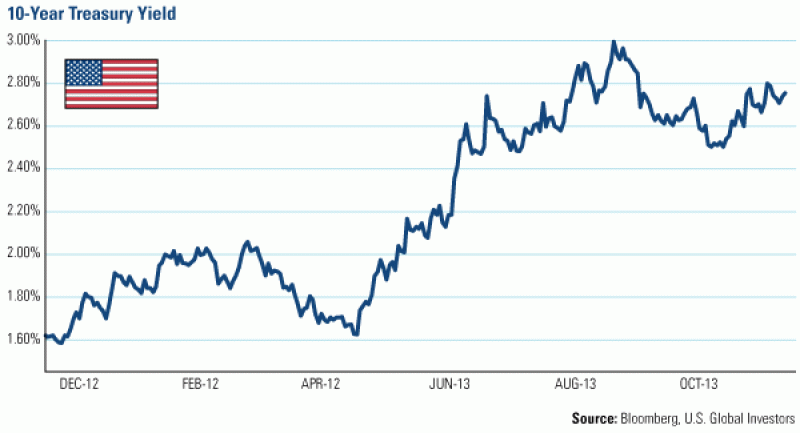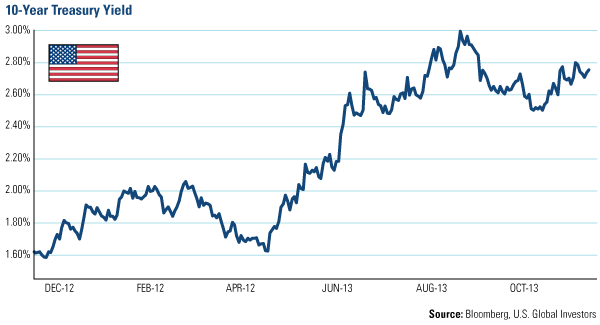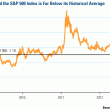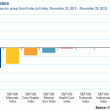The Economy and Bond Market Radar (December 2, 2013)
Treasury bond yields rose by 1 basis point this week as economic data came in better-than-expected, further encouraging outflows from fixed-income securities into the broader equity market.
Strengths
- Chicago’s Purchasing Manager Index for October was reported at 63.0, ahead of expectations of 60 and firmly in expansionary mode.
- Initial jobless claims fell by 7,000 last week to a seasonally adjusted 316,000, the lowest level since late September. Analysts were expecting jobless claims to fall to 330,000.
- The S&P/Case-Shiller Composite 20 Home Price Index for September was 165.66, the highest level in five years, and up 13.29 percent year-over-year.
Weaknesses
- The November Consumer Confidence Index came in at 70.4, below survey consensus and below the prior month print.
- Durable goods orders (ex-transportation) for October declined by -0.1 percent, below expectations of growth of 0.5 percent, and in line with the prior month.
- Pending home sales fell for a fifth straight month, dipping 0.6 percent in October, per the National Association of Realtors which said that the recent government shutdown, rising interest rates, and rising home prices all contributed to the decline.
Opportunities
- Despite recent conflicting commentary, the Fed continues to remain committed to an overall accommodative policy and is unlikely to raise interest rates in 2013 or 2014.
- Key global central bankers remain in easing mode, including the European Central Bank (ECB), Bank of England and the Bank of Japan. An ECB policymaker commented this week that the ECB could adopt negative interest rates or quantitative easing to lift inflation.
- There remain many moving parts to the taper decision and it is very possible that tapering could be delayed well into 2014.
Threats
- Inflation in some corners of the globe is getting the attention of policymakers and may be an early indicator for the rest of the world.
- Trade and/or currency “wars” cannot be ruled out which may cause unintended consequences and volatility in the financial markets.
- The recent bond market selloff may be a “shot across the bow” as the markets reassess the changing macro dynamics.

















